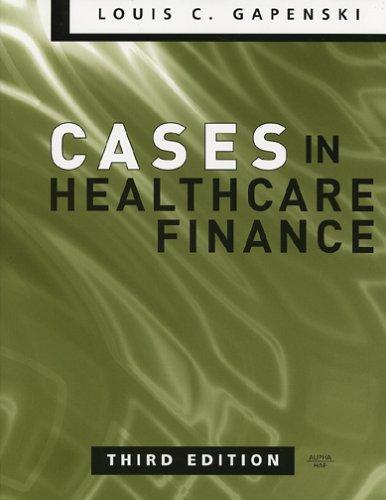
(MIRR) Star Industries owns and operates landfills for several municipalities throughout the Midwestern part of the U.S. Star typically contracts with the municipality to provide landfill services for a period of 20 years. The firm then constructs a lined landfill (required by federal law) that has capacity for five years. The $10.4 million expenditure required to construct the new landfill results in negative cash flows at the end of years 5, 10, and 15. This change in sign on the stream of cash flows over the 20-year contract period introduces the potential for multiple IRRs, so Star's management has decided to use the MIRR to evaluate new landfill investment contracts. The annual cash inflows to Star begin in year 1 and extend through year 20 are estimated to equal $3.5 million (this does not reflect the cost of constructing the landfills every five years). Star uses a 10.4% discount rate to evaluate its new projects, so it plans to discount all the construction costs every five years back to year 0 using this rate before calculating the MIRR. a. What are the project's NPV, IRR, and MIRR? b. Is this a good investment opportunity for Star Industries? Why or why not? a. The project's NPV where the discount rate is 10.4% is $ million. (Round to two decimal places.) The project's IRR is %. (Round to two decimal places.) The MIRR of the project with a discount rate of 10.4% is %. (Round to two decimal places.) b. Is this a good investment opportunity for Star Industries? Why or why not? (Select the best choice below.) O A. Yes, the project is worthwhile based on all of the measures because the IRR and the MIRR are more than the discount rate and the NPV is positive. O B. No, the project is not worthwhile based on any of the measures because the IRR and the MIRR are less than the discount rate and the NPV is negative. O C. The project is only worthwhile based on the NPV measure because the IRR and the MIRR are less than the discount rate but the NPV is positive. OD. The project is only worthwhile based on the IRR measure because the IRR is greater than the discount rate, but the MIRR is less than the discount rate and the NPV is negative. (MIRR) Star Industries owns and operates landfills for several municipalities throughout the Midwestern part of the U.S. Star typically contracts with the municipality to provide landfill services for a period of 20 years. The firm then constructs a lined landfill (required by federal law) that has capacity for five years. The $10.4 million expenditure required to construct the new landfill results in negative cash flows at the end of years 5, 10, and 15. This change in sign on the stream of cash flows over the 20-year contract period introduces the potential for multiple IRRs, so Star's management has decided to use the MIRR to evaluate new landfill investment contracts. The annual cash inflows to Star begin in year 1 and extend through year 20 are estimated to equal $3.5 million (this does not reflect the cost of constructing the landfills every five years). Star uses a 10.4% discount rate to evaluate its new projects, so it plans to discount all the construction costs every five years back to year 0 using this rate before calculating the MIRR. a. What are the project's NPV, IRR, and MIRR? b. Is this a good investment opportunity for Star Industries? Why or why not? a. The project's NPV where the discount rate is 10.4% is $ million. (Round to two decimal places.) The project's IRR is %. (Round to two decimal places.) The MIRR of the project with a discount rate of 10.4% is %. (Round to two decimal places.) b. Is this a good investment opportunity for Star Industries? Why or why not? (Select the best choice below.) O A. Yes, the project is worthwhile based on all of the measures because the IRR and the MIRR are more than the discount rate and the NPV is positive. O B. No, the project is not worthwhile based on any of the measures because the IRR and the MIRR are less than the discount rate and the NPV is negative. O C. The project is only worthwhile based on the NPV measure because the IRR and the MIRR are less than the discount rate but the NPV is positive. OD. The project is only worthwhile based on the IRR measure because the IRR is greater than the discount rate, but the MIRR is less than the discount rate and the NPV is negative







